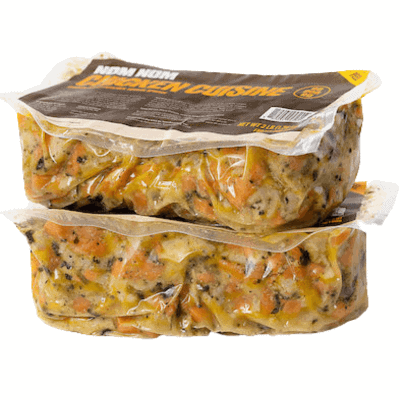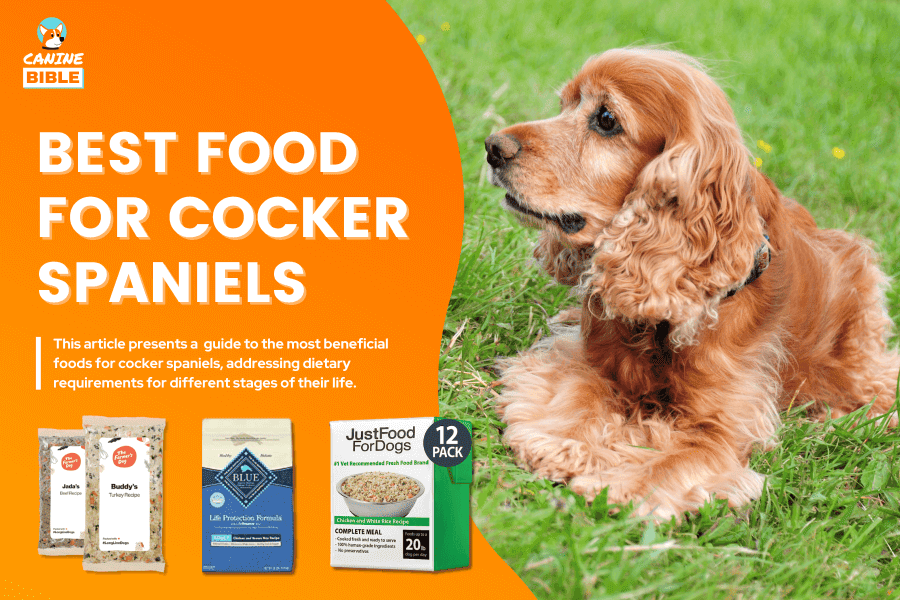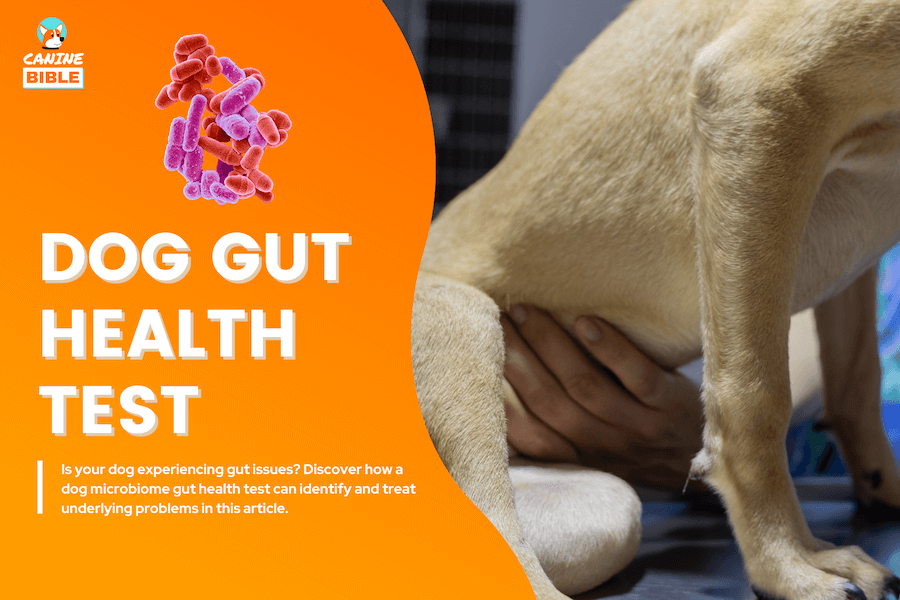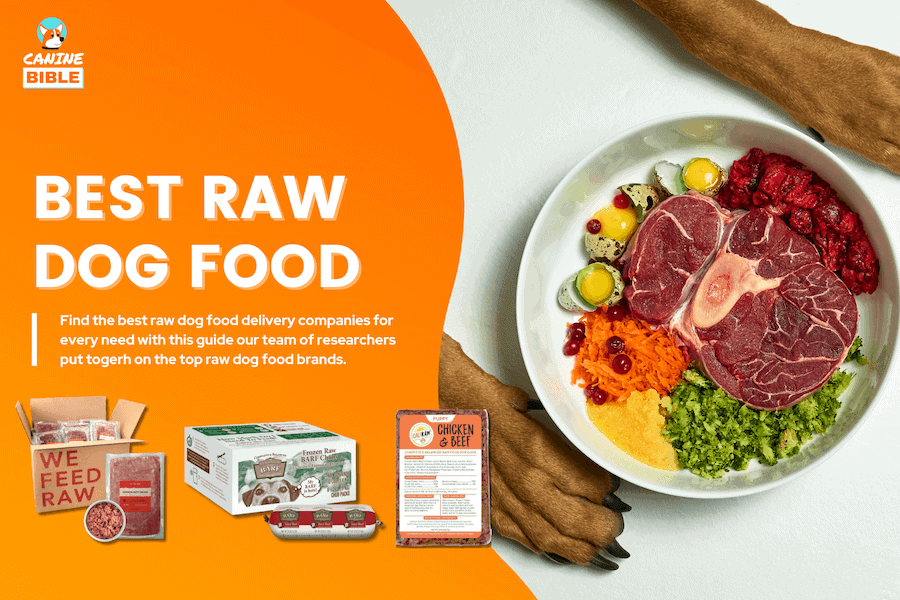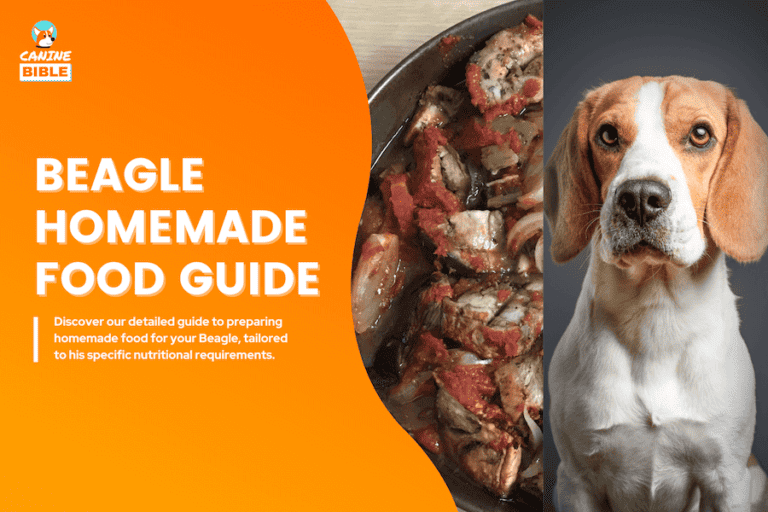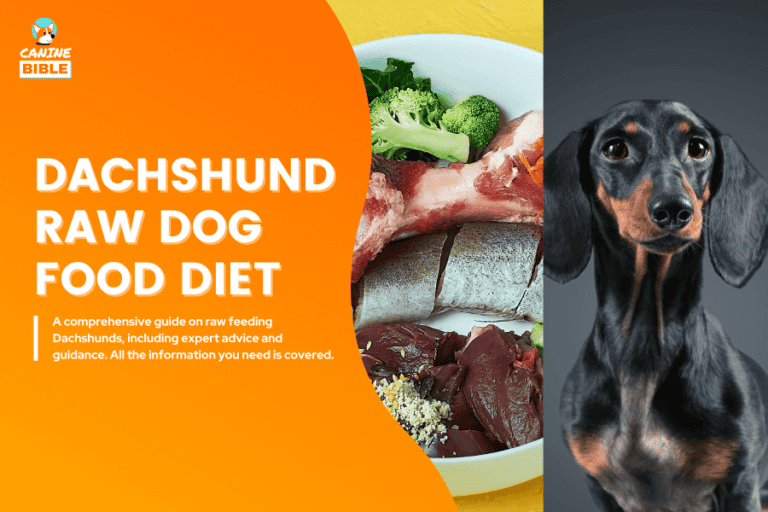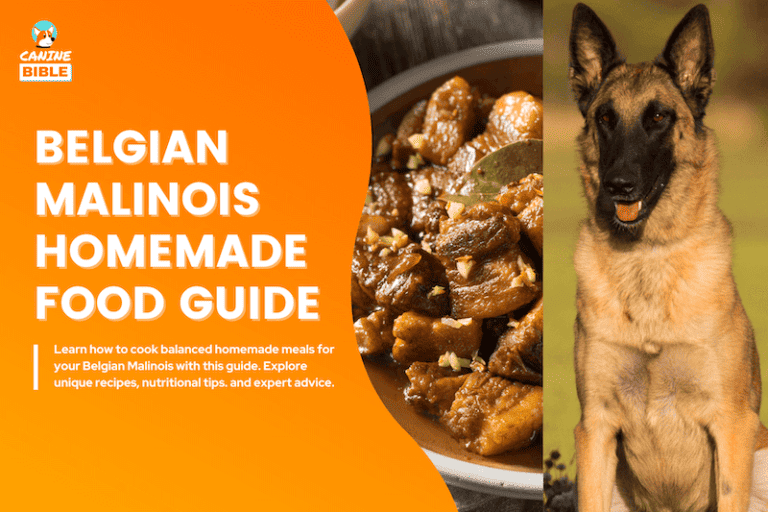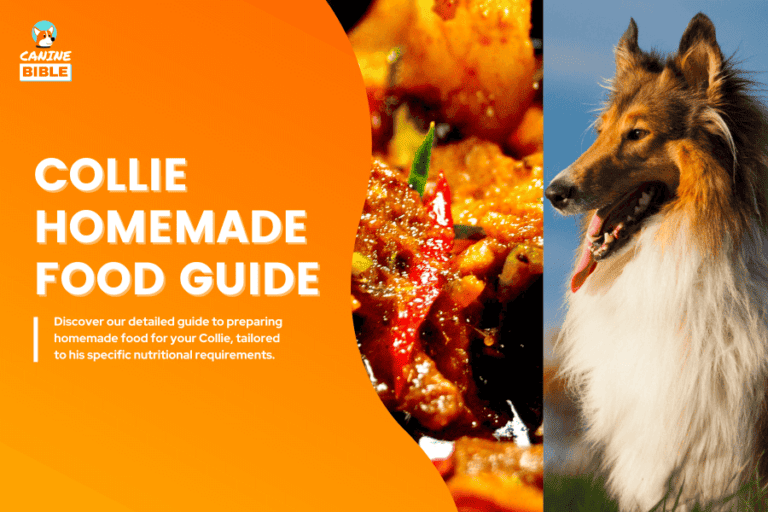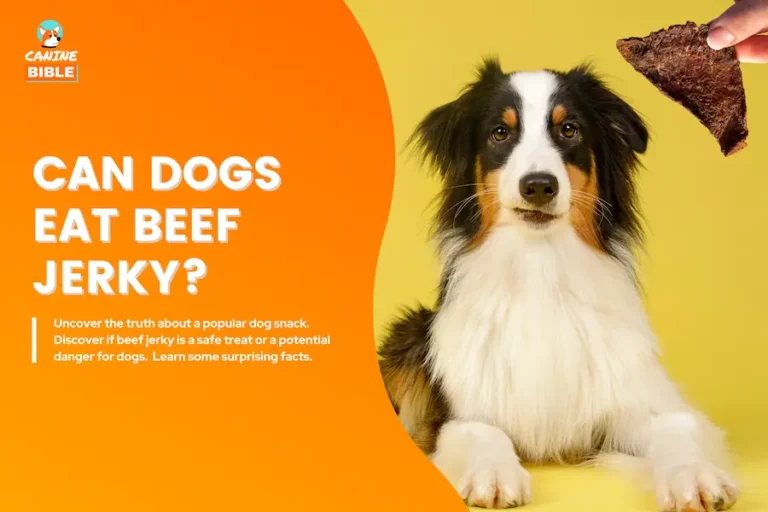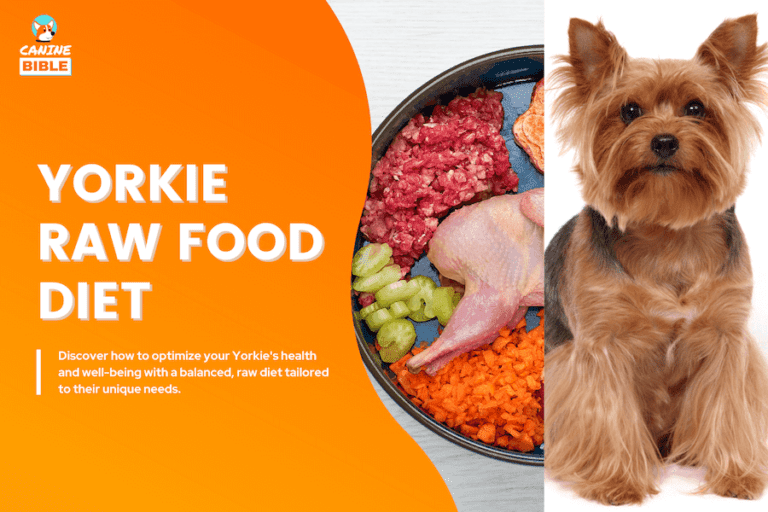Homemade Food For Cocker Spaniels Guide: Recipes & Diet Guide
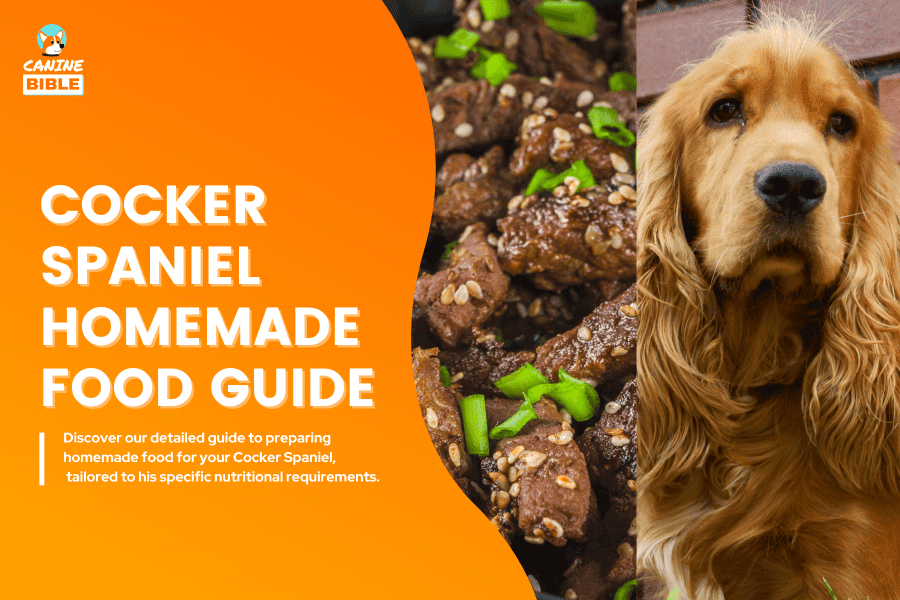
Canine Bible is reader-supported. We receive affiliate commissions via some of our links. This doesn’t affect rankings. Learn more.
This is the most comprehensive Cocker Spaniel homemade dog food guide.
As a proud cocker spaniel owner, you want to ensure your dog gets the best food possible. While many commercial foods are available for dogs, they can be expensive, and some dogs may not react well to them due to their highly processed nature and ingredients.
Making your own Cocker Spaniel food at home is a great option. This guide will show you how to make a balanced diet for your pup with easy-to-find ingredients and provide breed-specific nutritional tips. Let’s dive right in!
Cocker Spaniel Homemade Dog Food Benefits
Here are some of the main benefits of cooking for your Cocker Spaniel
Board-certified veterinary nutritionists and diplomates of the American College of Veterinary Nutrition, Jennifer A. Larsen, DVM, MS, Ph.D., and Joe Bartges, DVM, Ph.D., also agree that switching to homemade dog food comes with significant advantages, such as diet management, appeasing picky eaters, bond-building, combatting food intolerance and allergies issues, and avoid concern over dog food recalls.[1]
Further benefits include preventing many conditions associated with a poor diet, such as obesity, poor skin, coat condition, pancreatitis, diabetes, and reduced immunity.
Food And Cocker Spaniel Health: Why Feed Homemade?
Cocker Spaniels generally live between 10 to 14 years. This breed’s most common health problems include hip dysplasia, anemia, and epilepsy. Diseases like allergies, seborrhea, hypothyroidism, and other thyroid issues are also common in the breed. Other minor and less common health problems this breed suffers include ear Infections and excessive weight gain without proper daily exercise.[2]
How Can A Homemade Diet Help Cocker Spaniel Health Issues?
Cocker Spaniel Homemade Dog Food Risks
Here are some of the risks you need to keep in mind.
Research by the University of California Davis, School of Veterinary and two studies published in The Journal Preventive Veterinary Medicine and The Journal of Nutritional Science found that most homemade dog food recipes lack key essential nutrients, and other recipes used dangerously high levels of some nutrients.[7][8][9]
Here are the findings:
It’s vital to understand that dogs’ nutritional requirements are unique. We recommend consulting a veterinary nutritionist who can address your Cocker Spaniel’s dietary needs and help you make nutritionally balanced recipes or recommend a homemade food service for convenience.
Cocker Spaniel Nutritional Guidelines to Follow
According to the Association of American Feed Control Officials (AFFCO), the entity that supervises the nutritional value of commercial dog food, there are six essential nutrients all dog meals must contain to ensure a balanced and healthy diet for dogs.
A homemade diet should also consider your pup’s weight, health conditions, size, and activity level.
Below is a breakdown of each nutrient and its importance.
| Nutrient | Food | Description |
|---|---|---|
| Protein | Chicken, lamb, turkey, beef, fish, yogurt and cooked eggs | Builds and repairs muscles and other body tissues. Needed to make new skin cells, grow hair, hormones, enzymes and more. |
| Carbohydrates | Oats, brown rice, potatoes, and whole wheat | Source of energy for dogs and supplies glucose needed by the brain, nervous system and other critical organs for normal function. |
| Fat | From meats and oils such as olive or sunflower oil, fish oil, canola oils among others | Responsible for providing quality energy, growth and development. Supports the function of body cells, nerves, muscles, and tissues. |
| Minerals | Calcium, potassium, sodium, magnesium, iron, zinc, etc. | Common functions include the formation of bone and cartilage, nerve and muscle function, fluid balance regulation, the transportation of oxygen in the bloodstream and hormone production. |
| Water | Water | Hydration is critical in dogs. A dog that loses too much water (10% to 15% of the water in his body) can get very sick and even die. Ensure they have water available throughout the day. |
| Vitamins | A, B, C, D, E, and K | Keeps skin and coat healthy, strengthens bones and teeth, and gives them the overall energy that they need to function. |
Recommended Supplements For Cocker Spaniels
Here are the top recommended supplements for Cocker Spaniels based on their main health susceptibility issues.
Always consult your vet before making any changes to your dog’s diet. You can get personalized nutritional advice from a registered vet nutritionist through Vetster anytime, anywhere. You can also chat with an online vet and ask them questions about your dog’s nutritional needs.
For further dog nutrition guidance, consult “Home-Prepared Dog & Cat Diets: the Healthful Alternative” by Donald R. Strombeck, DVM, Ph.D., a renowned veterinary expert. This book is the go-to resource for healthy homemade dog nutrition for most pet nutritionists.
Health Dietary Changes In Cocker Spaniels
Cocker Spaniels experiencing any of the issues below might benefit from the dietary adjustments outlined in this table.
| Condition | Dietary Needs & Adjustments |
|---|---|
| Coat Color Changes | Increase amino acids which can be found in protein (>75 grams per 1000 calories) |
| Concurrent GI Signs | Avoid foods with tryptamine and histamine such as dairy or fermented vegetables and meats. This includes bacon. Try a simple ingredient food trial. |
| Chronic Itching and Dermatitis | Fortify the diet with vitamin E, vitamin B, Zinc, omega-6 and the omega-3 fatty acids found in fish oil. Add a dog probiotic. Try a simple ingredient food trial. |
| Dull Coat and Scaling | Adjust EPA and DHA levels in the diet. Adding fish oil can promote healthier coats by reducing itchiness and flakiness in the skin due to its omega-3 fatty acid content. |
| Dandruff and Crustiness | Add Zinc and Vitamin A levels |
If your Cocker Spaniel suffers from skin allergies or joint pain, adding dog fish oil may help bring relief. The AKC states that fish oil promotes healthier coats by reducing itchiness and flakiness in the skin due to its omega-3 fatty acid content. Other significant effects include promoting improved immunity (especially against cancer) while strengthening heart health in dogs.
Cocker Spaniel Calorie Requirements
The caloric needs of dogs are based on their weight. An adult Cocker Spaniel usually weighs between 20 and 30 pounds, which means most Cocker Spaniels need between 587 and 793 calories a day.
Ensure you adhere to the 10% guideline when giving treats to your dog. Food should account for 90% of calories, while treats comprise 10%. For example, if your Cocker Spaniel weighs 25 lbs., he would require 690 calories daily. With treats included, that’s 621 calories from food (90%) and 69 from treats (10%). Typically, most adult dogs have two meals a day. Hence, you should divide 621 into two meals of 310 calories each.
Pregnant or lactating Cocker Spaniels may need up to 2 to 4 times the food they usually need as the mother’s energy requirements increase after delivery and during lactation. Be sure to talk to your vet.
You can use our dog calorie calculator to find the exact caloric needs of your dog based on his weight.
Homemade Dog Food For Cocker Spaniel Puppies
A Cocker Spaniel puppy’s dietary requirements differ from an adult’s Cocker Spaniel.
Compared to adult dogs, puppies require higher protein, fat, calcium, and phosphorus levels. Inadequate or excessive amounts of these nutrients can lead to deficiencies, hindered growth, or lifelong health complications.
According to the American College of Veterinary Nutrition (ACVN), puppies need approximately twice as many calories per pound of body weight as adult dogs of the same breed.
However, many assume puppies require more food and calories daily because they grow quickly. This is not necessarily true. Dr. Justin Shmalberg, DVM, a veterinary nutritionist at Nom Nom, advises that to promote normal growth, most puppies need a similar number of calories and the same type of food from 4 to 12 months of age. Cocker Spaniel puppies should be fed 3 to 4 times per day. As your puppy ages (between 6 and 12 months), you can switch to 2 to 3 meals daily at scheduled intervals.
Skipping meals is not advisable during your puppy’s growth and development. As previously stated in our nutritional guidelines, a puppy’s diet should include a balance of proteins, carbohydrates, fats, minerals, water, and vitamins to ensure proper growth and development.
Homemade Dog Food Delivery Service
If you struggle to find time to cook for your Cocker Spaniel but wish your dog could eat whole, fresh homemade foods more often, a homemade dog food delivery service might be the perfect solution.
Nom Nom is one of our favorite options. They offer various fresh, homemade dog food options tailored to your dog’s unique dietary needs, age, health conditions, and nutritional goals. For example, if your Cocker Spaniel suffers from food-related health issues such as allergies or illnesses, Nom Nom can create a customized recipe that caters to those needs. Their meals are made with real, human-grade ingredients and delivered to your doorstep.
The food is developed by veterinary nutritionists who adhere to AAFCO nutritional guidelines. In our experience, using Nom Nom saves you time, allowing you to focus on more important things like walks or training your dog. Additionally, you won’t have to worry about the hassle of meal planning, grocery shopping, or cooking, and you can mitigate the risks of cooking for dogs.
Our readers can access 50% off their first Nom Nom order. Use this link to get your Cocker Spaniel’s first homemade meal.
Best Homemade Food For Cocker Spaniels
The best homemade food for Cocker Spaniels is a balanced diet that provides optimal nutrients for proper function while considering your dog’s nutritional goals and health. We highly recommend Nom Nom as the best homemade food for Cocker Spaniels.
Don’t feel like cooking for your Cocker Spaniel? Here is the most comprehensive guide to help you find the best dog food for Cocker Spaniels.
Cocker Spaniel Homemade Food Tips
Before sharing our favorite Cocker Spaniel homemade food recipes, follow these best practices when preparing your dog’s next meal.
How To Cook Homemade Food For Cocker Spaniels ( Video)
Watch this video and learn how to cook homemade meals for Cocker Spaniels.
Best Cocker Spaniel Homemade Dog Food Recipes
Browse the best homemade dog food recipes for Cocker Spaniels that will make your pup beg for more.
We’ve also included a special treat recipe for your Cocker Spaniel, enriched with the health benefits of our favorite ingredient: dog CBD oil. CBD oil might help with issues like seizures, anxiety, arthritis, inflammation, pain, and overall wellness.
Note: Consult your vet before adjusting your dog’s diet. The recipes below don’t specify serving sizes since they depend on your dog’s breed, weight, age, activity, and health. As a guideline, consider feeding the equivalent amount you’d give in kibble, but always consult your veterinarian for proper portioning.
Blueberry-Banana CBD-Infused Dog Treats
Treat your Cocker Spaniel with these nutritious, therapeutic, and delicious homemade CBD dog treats. They are made with bananas, a great source of essential vitamins and minerals (like potassium, vitamin C, and vitamin B6). Banana also aids with digestion and energy. Coconut is added for skin and coat, digestion and helps reduce allergic reactions.
Remember to consult your vet to ensure CBD is safe for your dog and that you are giving the correct dosage. Alternatively, you can buy commercially available CBD dog treats so your pup can experience CBD’s benefits without the cooking.
Ingredients
Directions
- Preheat your oven to 350ºF. Brush a dog biscuit baking tray with coconut oil.
- Mash the ripe banana in a bowl until smooth. Ensure there are no large chunks left.
- In a medium-sized bowl, blend the gluten-free flour and oats.
- In another bowl, whisk the egg until it’s beaten. Add coconut oil, water, mashed banana, unsweetened applesauce, and fresh blueberries. Mix until well combined.
- Gently pour the wet mixture into the bowl containing the dry ingredients. Stir until you get an even consistency. Drizzle in the CBD oil and give it another stir to ensure even distribution.
- Use a tablespoon measure to scoop out portions of the mixture. Press each scoop firmly into the dog treat baking mold.
- Place the tray in the oven and bake the treats for 30 to 40 minutes. They should be firm to the touch and slightly golden when ready.
- Once the treats have cooled, transfer them to an airtight container for storage.
Chicken & Rice Delight
Many dogs have a soft spot for chicken, making this dish a universal canine favorite. This easy-to-make recipe ensures your Cocker Spaniel gets a nourishing and delightful meal. This batch yields approximately four servings, which can be stored in your refrigerator.
Ingredients
Directions
- Chicken Preparation. Cut the chicken into half-inch pieces. In a frying pan with 1 tablespoon of vegetable oil, cook the chicken on medium heat for about 15 minutes or until fully cooked. Remove the chicken pieces and set aside the pan drippings.
- Rice preparation. In a pot, cook the rice according to the package instructions or until it’s soft and fluffy. Once done, set aside.
- Gravy creation. Over medium to low heat, warm the chicken drippings in the pan. Combine ½ cup of water or chicken broth with ½ cup of flour. Gently stir until it becomes a smooth mixture. Continue cooking until it evolves into a thick gravy consistency.
- Combining ingredients. Add the cooked chicken, rice, peas, and carrots to the gravy. Simmer the mixture for approximately 10 minutes or until the veggies are tender.
- Cooling. Let the stew cool down to room temperature before serving to ensure it’s safe for your dog.
Turkey, Vegetable & Quinoa Feast
Ingredients
Directions
- Cooking the turkey. Over medium heat, cook the ground turkey in a non-stick skillet until fully done. Ensure it’s crumbled well to make it easier for your dog to digest.
- Preparing the feast. Combine the quinoa, cooked turkey, and water in a large pot. Bring this mixture to a boil.
- Simmering. Once boiling, reduce the heat to medium-low. Let it simmer for approximately 15 minutes or until the quinoa becomes soft and translucent.
- Adding vegetables. Introduce the carrots, green beans, and spinach to the pot. Allow the mixture to cook for another 10 minutes, ensuring the vegetables are tender but not overly soft.
- Finishing touches. Once off the heat, stir in the fish oil and sprinkle turmeric, ensuring it’s mixed well.
- Storing. Let the meal cool to room temperature before serving. Extra portions can be refrigerated and consumed within five days.
Beefy & Veggie Medley
Ingredients
Directions
- Egg prep. Begin by boiling the eggs until they are hard-boiled. Once done, peel and finely chop them.
- Beef cooking. Brown the ground sirloin over medium heat in a large skillet, ensuring it’s thoroughly cooked. Once done, drain off any excess fat.
- Mix & combine. In a large mixing bowl or container, combine the cooked brown rice, browned sirloin, chopped eggs, diced or shredded carrots, peas or green beans, minced parsley, and the optional sprinkle of turmeric. Drizzle with olive or safflower oil.
- Stir together. Using a large spoon or spatula, gently mix all the ingredients until they are evenly distributed and well combined.
- Serve & store. Serve the mixture in your dog’s dish, ensuring it’s cooled to a safe temperature. Store any leftovers in an airtight container in the refrigerator.
If you want more homemade dog food recipes and cooking options for your Cocker Spaniel, cookbooks can be useful for various recipes. Our top pick is Home Cooking for Your Dog: 75 Holistic Recipes for a Healthier Dog.
Best Dog Cooking Practices
Ensure that your Cocker Spaniel’s meals are safe and nutritious with these tips.
Monitor Weight And Health
A dog’s weight and gut health are essential indicators of their health, and you need to track them when switching to a new diet (i.e., homemade). Maintaining a healthy weight is easier when your Cocker Spaniel is fed the right dog food. If your dog’s weight increases or decreases rapidly, it might be due to food-related health issues. A healthy gut can confirm a smooth transition to your dog’s new diet, among other health issues. However, identifying a healthy gut is not an easy task. Fortunately, an at-home dog gut health test can provide insight into your dog’s gut health.
Skin or coat issues, excessive tiredness, allergies, weight loss, malnutrition, and obesity can be caused by unbalanced and insufficient meal plans. If you detect any of these symptoms while feeding your dog meals, stop doing it immediately and seek expert advice.
What Foods Should Your Cocker Spaniel Never Eat?
Below is a list of the most common toxic ingredients dogs need to avoid.
Here is the complete list of toxic ingredients your Cocker Spaniel should never eat. Please print it out and put it on your refrigerator as a reminder.
Cocker Spaniel Raw Diet (BARF)
Raw dog food mimics dogs’ diet in the wild millions of years ago. Raw dog foods, organs, muscles, whole or ground bones, fresh fruits, vegetables, and dairy products are usually included. Several raw dog foods are available, including homemade raw dog food and store-bought (frozen, freeze-dried, and dehydrated).
As the risk of contamination and nutritional imbalance is higher when handling raw foods, preparing a BARF diet for your Cocker Spaniel requires a lot of extra care and planning. Raw dog diets are gaining popularity because of their fantastic health benefits for teeth, coats, digestion, and allergies.
Read our “raw diet for dogs” article to discover its advantages and risks. Also, find the top raw brands for Cocker Spaniels in our best raw dog food post.
Homemade Dog Food For Cocker Spaniels — Conclusion & Alternatives
Are Cocker Spaniels allowed to eat homemade food?
The answer is a resounding yes! Just remember to include all the important nutrients they need in their diet, get it approved by your vet and you should be good to go. Just be sure to make food choices for your Cocker Spaniel based on their individual needs and that the meals are adequately balanced if they have a sensitive stomach or allergies, it’s essential to know what ingredients will be best for them!
Read up on vegan dog food if your Cocker Spaniel is prone to food allergies or food-related health issues. Plant-based diets are also becoming increasingly popular for dogs with food sensitivities and other health issues.
Like It? Subscribe & Share!
Canine Bible authorship represents the unified voice of our entire editorial team and our in-house veterinarians rather than a single author. Each article, blog post, and review published under the Canine Bible name undergoes a rigorous review process, involving all team members to guarantee accuracy and up-to-date in accordance with the latest veterinarian research. This collaborative effort is an integral part of our editorial process and aligns with our four pillars of content creation. This approach ensures our content is backed by expert knowledge and factual information, offering our readers reliable, actionable, and trustworthy content.

